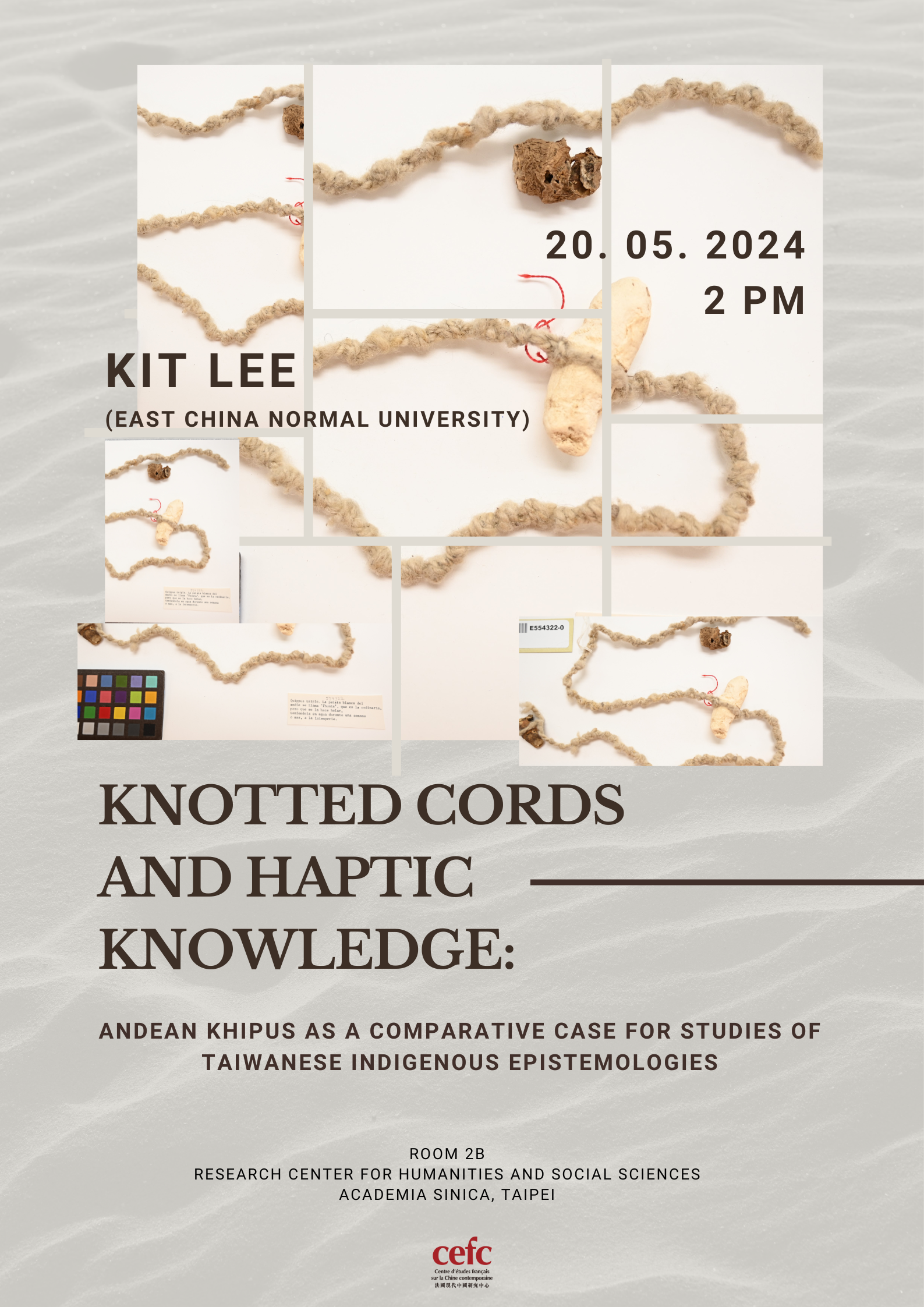The French Centre for Research on Contemporary China (CEFC), Taipei Office organise the following conference:
Speaker: Kit Lee (East China Normal University)
Kit Lee is Associate Professor (Research) at East China Normal University. They are an anthropologist focusing on indigeneity and Christianity, particularly Catholicism and the Peruvian Andes. Their degrees were gained from the University of Cambridge and the University of St Andrews.
Abstract:
Trans-indigenous studies have often focused on questions of indigenous knowledge and its positioning vis a vis the legacy of colonialism. This talk offers an indigenous Andean form of writing, known as khipus, as a comparative case for studies of Taiwanese indigenous knowledge and, particularly, forms of writing—with an eye to what might be gained from such comparisons for global perspectives on indigenous knowledge. Khipus are devices made of twisted and knotted cords, best known as the technology through which the Inka Empire (ca. 1400-1532 CE) in South America recorded administrative data, narratives and histories. Previously conceived of as idiosyncratic mnemonic devices, khipus are now widely recognised as a form of writing, albeit one which can no longer be read. Khipu decipherment has long been a goal of scholarship, and research has increasingly shown that khipus were not meant to be read exclusively visually, but also haptically. That this is so is deeply rooted in indigenous Andean epistemologies where the relationship between the tactile, visual and auditory are central to knowledge. Yet, the legacy of European Enlightenment thought—which consistently denigrated non-alphabetic writing as not ‘real’ writing—led to the devaluation of many of the indigenous textual traditions of both Asia and the Americas. The ways in which khipu decipherment is inseparable from understanding indigenous Andean cosmologies and epistemologies suggest a productive point of comparison for studies of Taiwanese indigenous epistemologies and writing systems.
This seminar will be held in English.
Corrado Neri, Director of the CEFC Taipei, will chair the session.


